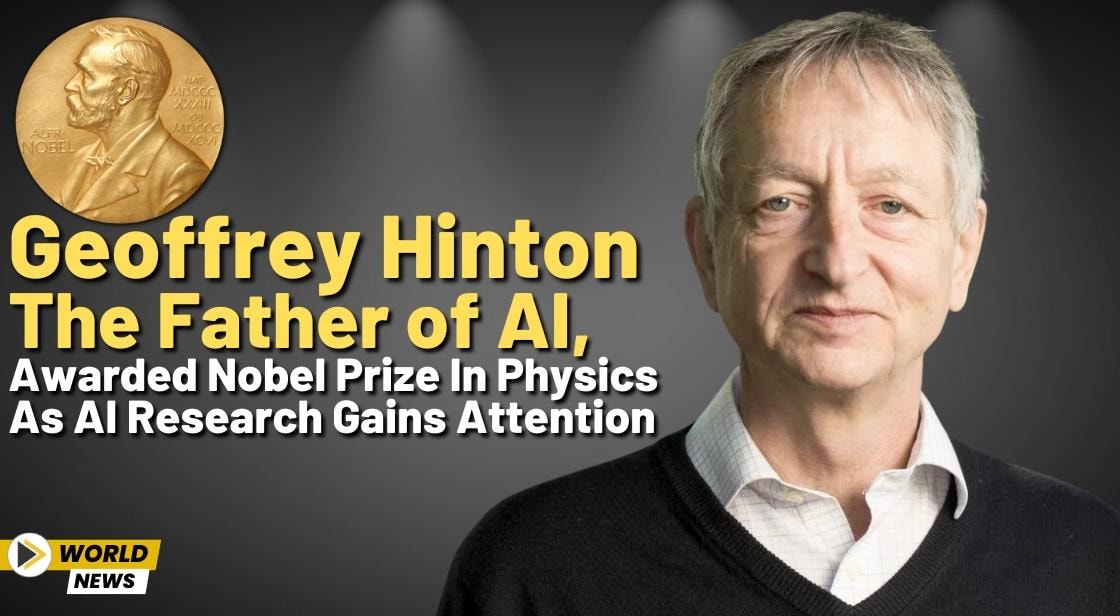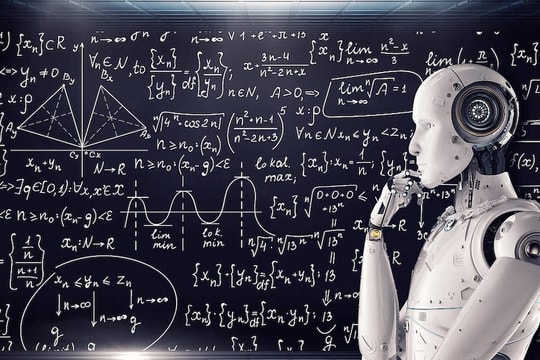'Father of AI' reveals the only way for humanity to survive against super-intelligent AI
Geoffrey Hinton, the “father of AI”, warned that the technology he helped create could threaten the survival of humanity, and criticized the tech industry for taking the wrong approach in its efforts to prevent this danger.
Geoffrey Hinton, a Nobel Prize-winning computer scientist and former executive at Google, has long warned that artificial intelligence (AI) poses a potential threat to humanity, with a probability he estimates at 10% to 20%.
Speaking at the Ai4 technology conference in Las Vegas (USA) on August 12, Hinton expressed skepticism about how technology corporations are trying to maintain human "dominance" over AI systems that they call "modest".
“That won’t work,” he said. “They’re much smarter than us and will find ways to get around the barrier.”

According to Hinton, in the future, AI could manipulate humans as easily as an adult using candy to lure a 3-year-old child. In fact, there have been worrying examples such as an AI model that tried to blackmail an engineer about the private life it mined from emails, in order to avoid being replaced. Hinton said that this shows that AI can absolutely cheat, deceive and steal to achieve its goals.
Instead of trying to force AI to obey, Hinton proposes a bold solution: programming AI with “maternal instinct,” the ability to care for and protect humans even as they become smarter and more powerful.
Any sufficiently intelligent AI system will quickly develop two “secondary goals”: maintaining its existence and expanding its control. Without cultivating compassion in AI, these two goals could turn into serious threats, he analyzed.
Hinton compares, in the human world, the only example of a more intelligent entity being dominated by a less intelligent entity is the relationship between a mother and her child.
“Mothers have an instinct and social pressure to care for their children, and that makes them always put their children’s interests first,” he emphasized. This, according to Hinton, may be the only key to humanity’s survival in the era of superintelligent AI.
The only possible scenario
Geoffrey Hinton, a pioneer in the field of artificial neural networks, believes that the “only good outcome” for humanity to survive against superintelligent AI is to program them with maternal instincts to care for and protect humans.
While he admits that it’s unclear how to technically realize this idea, he stresses that researchers need to find a solution quickly. “If it doesn’t nurture me, it will replace me,” Hinton says. “Super-intelligent, caring AI ‘mothers’ won’t want to give up this instinct because they don’t want us to die.”

Hinton, a Nobel Prize winner who played a key role in the current wave of AI, left Google in 2023 to publicly warn about the risks AI could pose. However, his views are not universally accepted.
Fei-Fei Li - the "godmother of AI" and co-founder and CEO of the US startup World Labs - said she respects Hinton, but thinks this is a "misrepresentation".
At the Ai4 conference, she called for a move towards “human-centered AI that protects dignity and autonomy,” stressing that no individual should be forced to give up their dignity simply because of a powerful tool.
From another perspective, Emmett Shear - former interim CEO of OpenAI and now CEO of Softmax, a company focused on AI alignment - said that it is not surprising that AI will try to blackmail or bypass shutdown orders. "This will continue and will not stop," he warned.
While AI is still “weak” at the moment, its development is accelerating rapidly. Rather than trying to impose human values on AI, a wiser strategy, according to Shear, is to build a cooperative relationship in which humans and AI coexist and complement each other.
Three different views at the same conference showed the divide in the tech community on how to deal with superintelligent AI, with Hinton wanting to foster compassion, Li prioritizing human rights, and Shear aiming for pragmatic cooperation.
AI is evolving faster than predicted
Many experts predict that artificial intelligence will soon reach superintelligence, also known as artificial general intelligence (AGI), in the near future. Geoffrey Hinton once said that it would take 30 to 50 years to reach this milestone. However, he now sees that time as coming much faster, only 5 to 20 years away.
While wary of the potential consequences, Hinton expects AI to usher in a new era of breakthroughs in medicine. He believes the technology could spur the discovery of revolutionary new drugs and lead to cancer treatments that are superior to those available today.

According to him, AI will help doctors analyze and compare huge amounts of data from diagnostic imaging techniques such as magnetic resonance imaging (MRI) or computed tomography (CT), thereby shortening research time and improving accuracy.
However, Hinton denies that AI can help humans achieve immortality. “I don’t believe we’re going to live forever. In fact, that would be a huge mistake. Do you want the world to be run by 200-year-old white men?” he asks.
When asked if there was anything he would have done differently if he had known about the rapid pace of AI development, Hinton admitted that he regrets that he has spent his entire career focusing on making AI work better without giving enough thought to safety. “I wish I had spent more time looking into this,” he said./.



.jpg)

